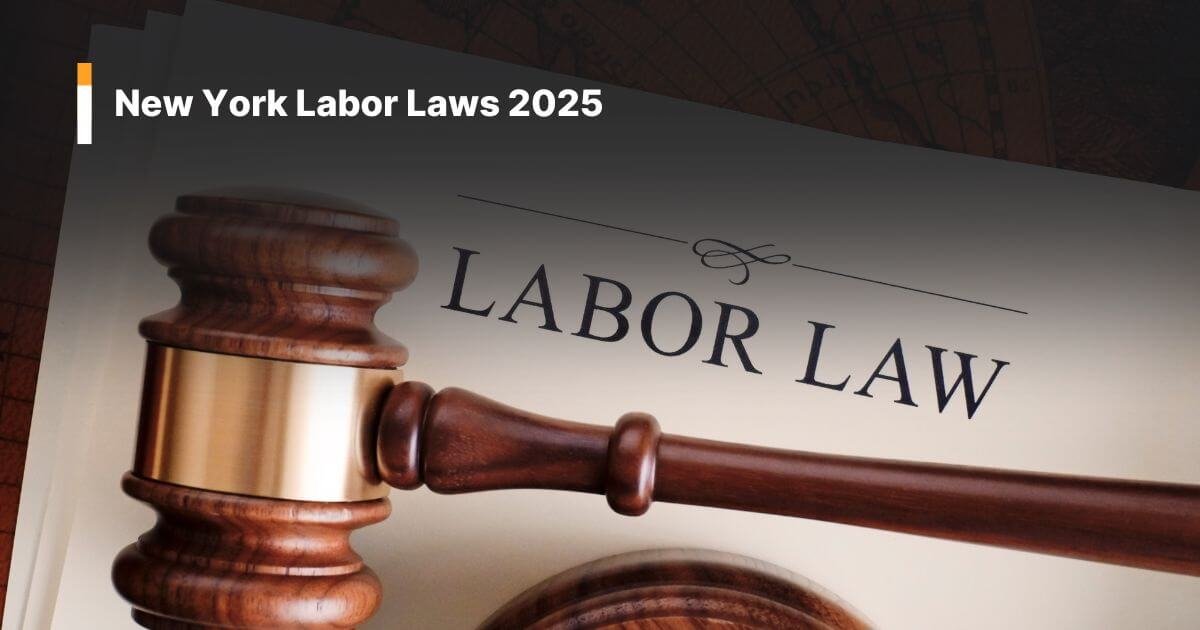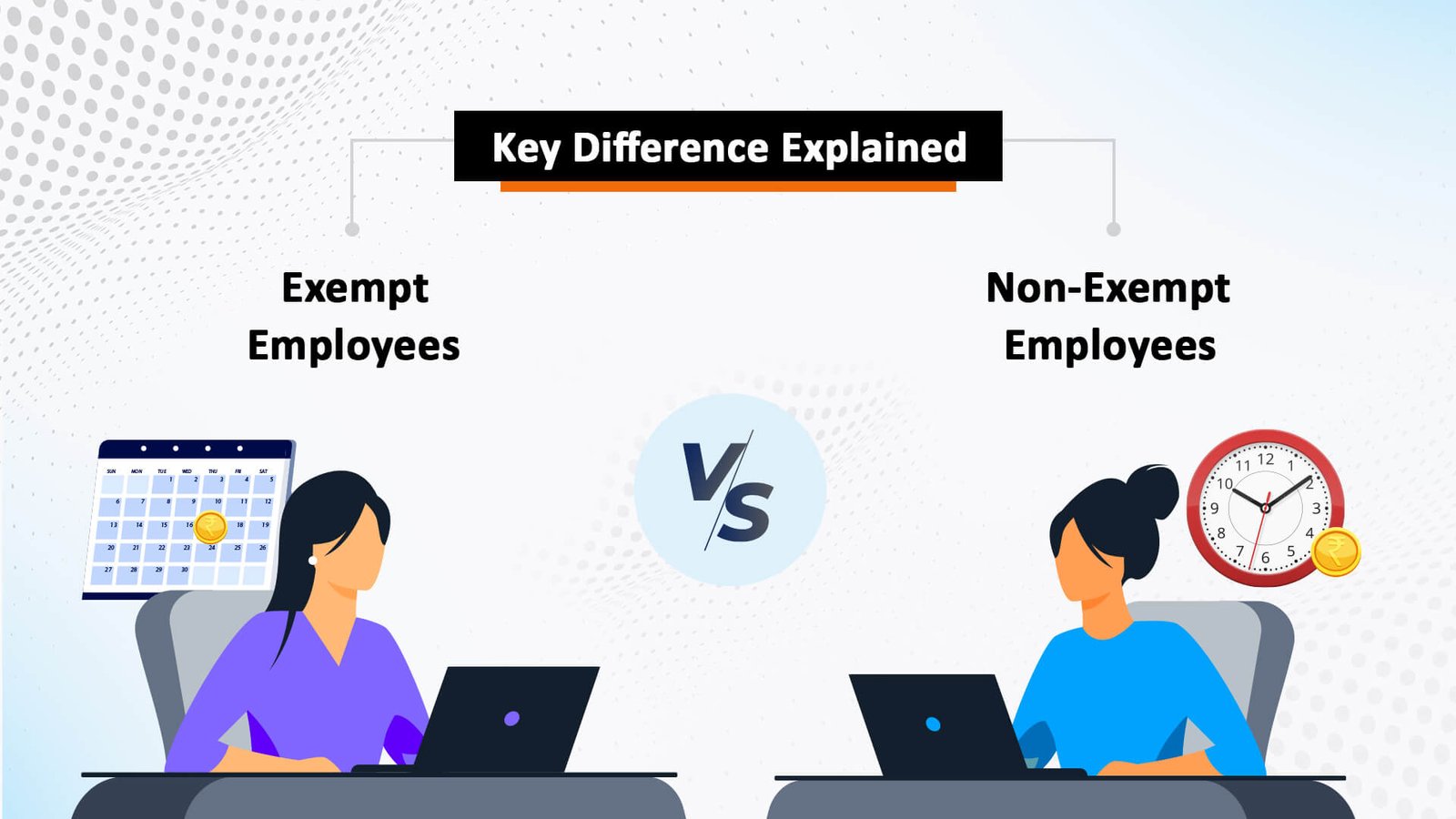New York’s 2025 labor law has changed significantly, with updates affecting both employees and employers across the state. These changes show the ongoing efforts to amplify worker protections while balancing business needs in an active environment. New York employers should comply with these newly regulated New York labor laws to avoid penalties and ensure proper treatment of the workforce.
The 2025 labor law updates include changes to the minimum wage requirements and new workplace safety regulations. The Clean Slate Act law transforms how past criminal records impact employment opportunities throughout New York State. These modifications aim to generate more unbiased workplaces while addressing modern employment challenges.
In this guide, we have covered everything about New York labor laws in 2025, which will help you in being compliant as you manage workers.
Employment laws provide employees and employers with a legal framework and guidelines for navigating workplace issues. In the U.S., employers must follow both the all-encompassing federal statutes and the state-level guidelines, which might vary from state to state.
New York offers a series of growing protections for employees, safeguarding workers from discrimination and promoting payment transparency. If you’re hiring for Empire State, whether you’re located in New York City or Long Island, you need to understand and comply with the local laws.
New York Labor Laws 2025 V/S Employment
People use terms like employment law and labor law identically, so it might surprise users to learn that they are talking about two different things. Ethically, employment laws define matters concerning the relationship between an employer and an individual. In contrast, in the labor laws section, there is a matter between an employer and a labor union.
Legislative Changes in 2025
Paid Family Leave:
The maximum benefit remains at 12 weeks of job-protected leave, which is 67% of an employee’s wages. In 2025, it will be $1,177.32 per week.
Minimum Wages:
Since 1 January 2025, the minimum wage has been $16.50 per hour in Long Island, New York, and Westchester—$15.50 per hour in the rest of the state.
Overtime Exemptions Salary Thresholds:
The minimum salary required for an executive and administrative overtime exemption is $1,237.50 per week in NYC and Long Island and $1,161.65 per week for the rest of the state.
Retail Worker Safety Act:
Effective June 2, 2025, retail employers with at least 10 employees must implement a written workplace violence policy and provide training. The law does not require any panic button for all stores, but it does mandate risk assessment and anti-retaliation provisions.
Paid Sick Law:
Employers with four employees should provide up to 40 hours of unpaid sick leave; those with 99 employees must provide up to 40 hours of paid leave, and those with 100+ employees should provide up to 56 hours of paid leave annually.
Overtime Pay in New York in 2025
There comes a time when working outside of regular working hours is unavoidable. When this thing happens, New York employees can receive overtime pay. In 2025, the minimum salary is an entrance for overtime exemptions, like:
- NYC & Long Island: $1,237.50 per week
- Rest of New York State: $161.65 per week
Earning below these rates will often receive an overtime pay rate at x1.5 times their regular rate for hours worked beyond 40 per week.
Child Labor Laws 2025
In New York, child labor law applies to children under the age of 18. The law restricts the hours a minor might work, and minors need to obtain working papers to hold a job in the state.
Working hours are heavily restricted for minors under 16. Minors aged 16 or 17 cannot work between 10 pm and 12 am on a day before a school day unless they obtain a parent’s written permission or a guardian’s certificate confirming the minor is in good academic standing.
Minors under 16 cannot work:
- Between 7 pm and 7 am after Labor Day till June 20.
- Between 9 pm and 9 am from June 21 to Labor Day.
Minors under 16 are also prohibited from working in most occupations:
- More than 3 hours on any school day.
- More than 8 hours on a non-school day.
- More than 18 hours in any week.
- More than 6 days in any week.
Pay Transparency in New York
Over the last few years, pay transparency has become a hot topic in state departments of labor across the U.S. Pay transparency laws are being proposed for various reasons, including wage equity and preventing disparities in pay based on factors such as gender identity and age.
Workplace Safety and Health
New York does not provide complete legal guidance for workplace safety and health. However, it follows the federal law requirements under the Occupational Safety and Health Act. All New York employers should meet the OSH Act requirements.
New York’s labor laws include vital protection for worker safety and well-being. These regulations address specific hazards in the retail environment, violence prevention, and regional variation across the state.
A new workplace safety policy came into effect on June 2, 2025. The New York Retail Worker Safety Act requires all employers with at least 10 retail employees to implement specific training and workplace violence policies.
Female Factory and Store Workers
New York law prohibits female employees from working in a factory within 4 weeks of pregnancy unless they provide the employer with a doctor’s note showing that they can perform the work and a letter stating they are willing to return to work.
Union Labor Laws
A labor union is a band of two or more employees who stand together against advances in worker rights at their company. Unions bargain with employers to negotiate employment contracts that provide employees with fair working conditions. Some basic labor union responsibilities include overtime pay, working hours, and health insurance costs.
Under the National Labor Relations Act of 1935, various employees’ rights were blessed with the respect of the unions. Employees are guaranteed the following rights:
- Develop or join a union to negotiate with an employer.
- Bargain collectively.
- Discuss the employment terms with other co-workers.
- Take strict action to improve the working conditions by filing complaints with the government.
- Strike depending upon the situation.
The NLRA made it illegal for unions and employers to act in a way that might pressure an employee into supporting a union. You cannot fire an employee for joining a union. Unions aren’t a threat to firms or workers. Workers can decide whether they want to be a part of the union or not.
Employment Contracts and Severance
Employment Contract Laws
New York is an at-will employment state. This means an employer can terminate employment for any reason as long as it is not contrary to law.
Rules include:
- When the termination violates a law.
- When the termination violates public policy.
Non-compete agreements are allowed in New York, but they must meet the standard criteria to be legitimate. For example, they should protect an official business and be reasonable in time. Recent efforts have been made to ban them in New York; keep an eye on this development.
Additional Laws
- Drug Testing: Employers are restrained from using any drug test to check whether an employee is using cannabis or not.
- Anti-Smoking: New York State prohibits smoking and e-cigarettes in most workplaces. No-smoking signs must be placed in all places where smoking is not permitted.
- Whistleblower Protection: New York’s whistleblower law provides wide protection to employees and independent contractors. This law prohibits retaliation when a report is made about any activity that the reporter believes has violated any law. A whistleblower has the right to file a civil lawsuit against employers for retaliation for whistleblowing. Employees must file a civil lawsuit within 2 years of the employer’s action.
New York Employees Should Use a Free Payroll Stub Generator
If you’re an employee and you’re facing challenges in calculating your taxes or managing your finances effectively, you can rely on our tool to organize your work.
If you’re using any expensive tool that is proving costly to you, then you can use Stubcreator’s free paystub generator, which provides you with accurate New York payroll calculation information.
You can use the above information about New York labor laws to update your business in 2025.
FAQ's
What are the new minimum wage rates in New York for 2025?
+
In 2025, New York's minimum wage will continue to vary by region, with higher rates in New York City, Long Island, and Westchester. The state also plans to implement annual adjustments for inflation.
Does New York 2025 labor law provide paid family leave?
+
Yes, New York's Paid Family Leave program remains active in 2025, offering employees up to 12 weeks of paid leave for personal and family health matters, including bonding with a newborn or adopting a child.
What are the changes to child labor laws in 2025?
+
In 2025, New York increases penalties for employers violating child labor laws, including stricter restrictions on work hours for minors, ensuring greater protection against exploitation.
Are lactation breaks mandatory under New York Labor Laws 2025?
+
Yes, as of 2025, employers are required to provide lactation breaks for nursing mothers, including a private, sanitary space to express breast milk, and must not penalize employees for taking these breaks.





